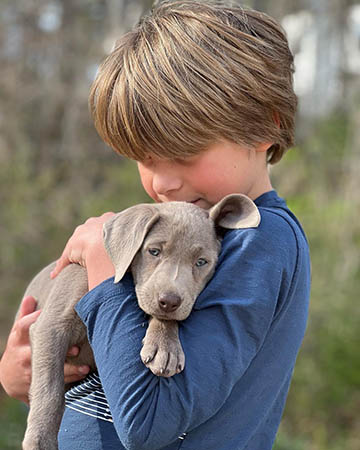Pets are family. But what would happen if you weren’t around to take care of them? Who would care for your pet? Who would cover their expenses?
These are critical questions, and your estate plan should address them.
Do I Need a Will or Trust to Care For My Pet in Georgia?
In Georgia, pets pass like property in a Will. However, a Will may not be the best choice.
Your pet will need to be taken care of immediately if you pass away. If you left your wishes in a Will, there’s a problem: a Will can take time to go through the probate process. In the meantime, your pet could be left in limbo with no clear plan for food, shelter, or medical care.
In 2010, the Georgia legislature enacted a law allowing for the creation of Georgia Pet Trusts to ensure every member of the family is cared for and covered. Unlike a Will, a Trust is not subject to the probate process.
What is a Pet Trust?
A Pet Trust creates a legal relationship between the pet owner, a trustee, a caregiver, and the pet(s). A Pet Trust would be created during your lifetime and end when your pet or your last remaining pet passes away.
What Does a Pet Trust Address?
Here are some of the different components of a Pet Trust and some of the decisions you will have to make in creating one:
- Trustee. Your Trustee will be in charge of the financial aspect of caring for your animal. This should be an individual you trust with money and believe will make the best financial decisions for your pet’s needs. They will be in charge of providing funds for veterinarian visits, food, and other expenses that come with caring for your pet.
- Caretaker. The person you designate as Trustee may not necessarily be the one you wish to physically care for your pet once you are gone. The person you will want to choose as the caregiver should be someone who would care for your pet as you do.
- Resources. You do not have to put money in the Trust during your lifetime. It can be funded when you pass away, for example, by life insurance proceeds, bank account funds, or assets in a Revocable Living Trust. You will want to set aside enough money in the Trust to care for your pet for the rest of its life. According to the ASPCA, in 2021, the average cost of owning a common household pet ranges from $700 to $1,100 per year. (Horses usually have a higher cost.) The Trustee’s job is to manage this money so that it lasts for the pet’s lifetime. Any money left upon the death of your pet can go to a designated beneficiary of your choosing.
What Else Should You Address in Your Plan?
Your plan should include instructions to care for your pet, for example:
- Feeding Schedule – How often should they be fed? Do they have specific meal times?
- Food Preferences – What brand and type of food do they eat? Do they have allergies or dietary restrictions?
- Veterinary Care – How often should they see the vet? Are there specific health concerns? Which veterinarian do you see? Do you have pet insurance?
- Medications & Supplements – What medications do they take? When and how should they be given?
Speak with an experienced Georgia Pet Trust Attorney
No one likes thinking about not being here for their pet. But planning now means you won’t have to worry about what happens if something unexpected occurs.
A Pet Trust makes sure your pet will be cared for the way you want, with the right person, and with the resources they need.
Contact our office to speak with one of our Georgia Pet Trust attorneys by calling (678) 882-0830.


